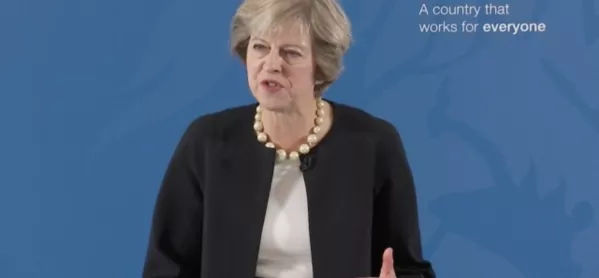Theresa May outlined her plans last week to bring an end to the near 20-year ban on opening new grammar schools. This afternoon her government will publish a green paper outlining more details.
The prime minister’s proposals also included expanded selection for faith schools and new conditions placed on universities and independent schools.
Here is a summary of what we know so far about the government’s plans:
- New grammar schools
Ms May said she would “relax” the ban introduced under Labour in 1998 against opening grammar schools, describing it as “completely illogical” to make it illegal to open new good schools. New grammars would only open where there was sufficient local demand.
- Selection in schools that are currently comprehensive
Similarly, the prime minister said existing non-selective schools would be allowed to select where there was demand from parents for such a change.
- Existing grammar schools
Existing grammar schools would also be able to expand.
- No quotas but only £50m to pay for more academic selection
Ms May said she would not “set a quota” for the number of selective schools she wanted to introduce. She announced £50 million a year to help grammar schools grow.
- Pupil movement between grammar schools and comprehensives
Ms May said she wanted to see greater collaboration between selective and non-selective schools. with students from non-selective schools being able to study certain subjects at their local grammar. She also wanted greater opportunities for those who did not pass the 11-plus to attend a grammar school later in their school career, such as at 14 or 16.
- Not a binary system
The prime minister said the changes would not mean a return to the binary system of the 1950s, but would “build on the diverse education system” that currently existed. The government would prevent any area becoming entirely selective, Ms May said, but was unclear about local authorities that already were, such as Buckinghamshire and Kent.
- Helping those who are ‘just getting by’
The creation of new grammars will come with a series of caveats to help working-class children who may not be in receipt of free school meals. Any new grammar will have to meet certain conditions including opening a “feeder” primary in disadvantaged areas. The schools may also have to take a proportion of pupils from lower-income households and even establish a non-selective free school alongside the grammar school. Ms May said too much of recent education policy was “skewed” by its focus on free school meal children at the expense of the “hidden” children in families that were “just getting by”.
- More selection by faith
Ms May also said she would lift the ban on any new faith school selecting more than 50 per cent of pupils on the basis of their religion. The limit on oversubscribed religious free schools was putting off providers such as the Catholic Church, she argued. The Church said it would not open any new state schools because of the restrictions.
- Greater pressure on universities and private schools
Universities would have to do more in terms of widening access to disadvantaged young people, Ms May said. Rather than just bursaries and student support, she wanted universities to sponsor state schools. Likewise, indepedent schools would have to work harder to warrant their charitable status, Ms May said. Private schools, like universities, will be expected to either sponsor state schools or open new ones.
Want to keep up with the latest education news and opinion? Follow TES on Twitter and like TES on Facebook




